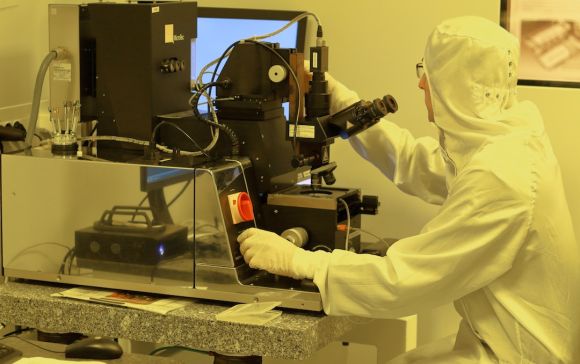Nanotechnology is a rapidly growing field that holds immense potential to revolutionize various industries and improve our lives in countless ways. By manipulating materials at the nanoscale, scientists and engineers are able to unlock new properties and functionalities that were previously unimaginable. From medicine to electronics, nanotechnology is transforming the world we live in.
Unleashing the Potential of Nanomedicine
One of the most promising applications of nanotechnology is in the field of medicine. Nanomedicine refers to the use of nanotechnology for diagnosing, treating, and preventing diseases. With the ability to target specific cells or tissues, nanomedicine offers the potential for more precise and effective treatments.
For instance, nanoparticles can be designed to deliver drugs directly to cancer cells, minimizing side effects and increasing the efficacy of treatment. Additionally, nanosensors can be used for early detection of diseases, enabling prompt intervention and better outcomes. The use of nanotechnology in medicine has the potential to revolutionize healthcare and improve the quality of life for millions of people.
Enhancing Electronics with Nanomaterials
Nanotechnology is also reshaping the electronics industry. The miniaturization of electronic components has been a driving force behind the development of smaller, faster, and more efficient devices. Nanomaterials, such as carbon nanotubes and graphene, have unique electrical properties that make them ideal for use in electronics.
These nanomaterials can be used to create transistors that are smaller and more energy-efficient than traditional silicon-based transistors. This opens up possibilities for the development of ultra-thin, flexible electronics, such as wearable devices and bendable displays. Nanotechnology is enabling the next generation of electronics, paving the way for innovative applications and improved performance.
Revolutionizing Energy Storage and Generation
The need for clean and sustainable energy sources has never been more pressing. Nanotechnology is playing a crucial role in the development of advanced materials for energy storage and generation. For example, nanomaterials can be used to improve the efficiency of solar cells, making them more affordable and accessible.
Nanotechnology is also being used to develop high-capacity batteries with faster charging times and longer lifetimes. This has the potential to revolutionize the transportation industry, enabling the widespread adoption of electric vehicles. By harnessing the power of nanotechnology, we can overcome the limitations of traditional energy sources and create a more sustainable future.
Addressing Environmental Challenges
Environmental challenges, such as pollution and water scarcity, require innovative solutions. Nanotechnology offers a range of tools and techniques that can help address these issues. For instance, nanomaterials can be used to remove pollutants from water and air, making them cleaner and safer for human consumption.
Nanotechnology can also enhance the efficiency of water purification processes, enabling the production of clean drinking water for communities in need. Additionally, nanoscale sensors can be used to monitor environmental parameters and detect potential hazards in real-time. By harnessing the power of nanotechnology, we can protect and preserve our environment for future generations.
In Conclusion
Nanotechnology has the power to transform industries, improve healthcare, and address pressing global challenges. By manipulating materials at the nanoscale, scientists and engineers are unlocking new properties and functionalities that were previously unimaginable. From nanomedicine to electronics, energy storage to environmental solutions, the potential of nanotechnology is vast and exciting. As we continue to explore and harness the power of nanotechnology, we can look forward to a future filled with innovation, sustainability, and improved quality of life.
